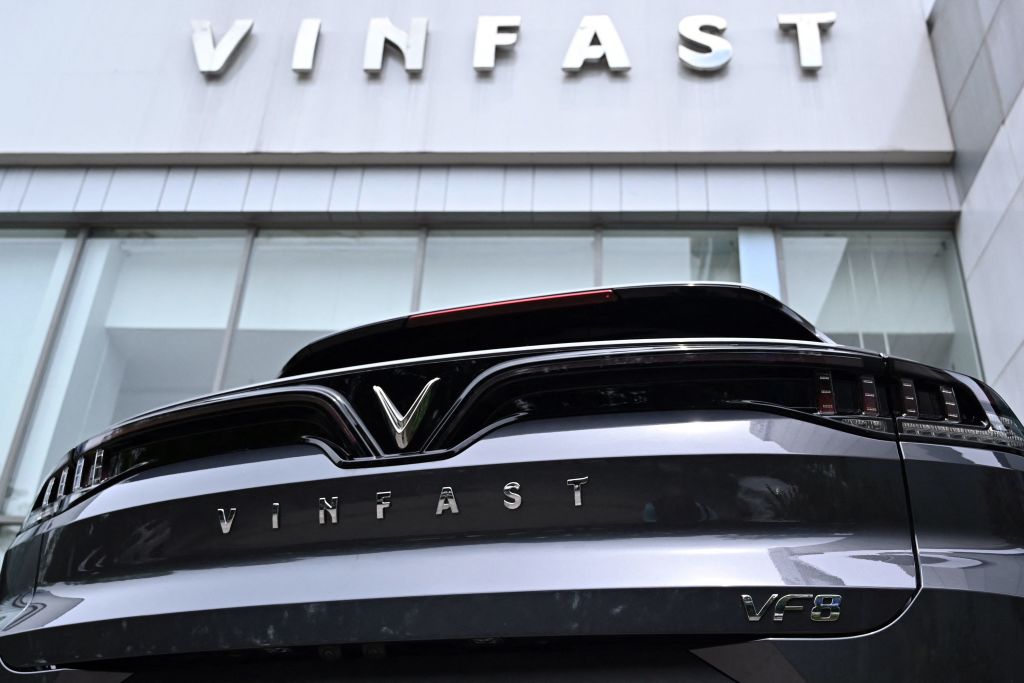- Saturday, July 27, 2024

By: Shubham Ghosh
HERE are news in brief on Indian economy and business for Monday (18):
Vietnamese electric carmaker VinFast Auto on Monday expressed optimism about India’s recent electric vehicle (EV) policy that grants import duty concessions to companies establishing manufacturing units in India with a minimum investment of $500 million. VinFast believes the initiative will enable them to introduce a diverse range of eco-friendly, premium-quality SUVs at affordable prices. According to Pham Sanh Chau, CEO of VinFast India, the government’s new electric vehicle (EV) scheme is designed to attract substantial investments in manufacturing, foster competencies and skill development, establish a robust supply chain, and provide consumers with top-notch, zero-tailpipe emission vehicles. “With a long-term growth commitment in India, we have pledged an expenditure of USD 500 million, which includes the electric vehicle manufacturing facility in Tamil Nadu,” Chau said.
Emissions from India’s buildings sector between 2020 and 2070 are projected to reach 90.85 gigatonnes of carbon dioxide equivalent in the business-as-usual scenario, exceeding the carbon budget allocated for the entire country, according to a report released on Monday. The countries are striving to achieve net-zero emissions (a balance between greenhouse gases emitted and removed from the atmosphere) to limit the rise in global average temperatures to 1.5 degrees Celsius and prevent further worsening of climate impacts. Becoming a net-zero economy is particularly challenging for India as it must achieve the dual goals of fulfilling developmental aspirations and curbing greenhouse gas emissions.
In a vast industrial park in southern India, finding available land is becoming increasingly challenging and workers are racing against time to construct state-of-the-art warehouses and factories for companies capitalizing on India’s economic growth or seeking to diversify their supply chains away from China. “It is one of the most wanted places in India for European and American companies,” S Raghuraman, an official of the Greenbase industrial park in Chennai in the state of Tamil Nadu, near plants run by Apple supplier Foxconn and truckmaker Daimler, was quoted as saying by Reuters. To meet the burgeoning demand, Greenbase aims to invest $800 million (£629 million) to quadruple its industrial park space to 20 million sq ft (1.9 million sq m), a target it spoke about for the first time, the report added.
Bank Maybank Indonesia Tbk, (Maybank Indonesia or Bank) a subsidiary of a Malaysian-based banking group with a presence in 18 countries, Malayan Banking Berhad (Maybank) injects capital amounting to $10 million (£7.85 million) into the bank’s branch operation in Mumbai, India. Competing with over 40 foreign banks in India, Maybank Indonesia’s Global Banking Director, Ricky Antariksa, said the bank seeks to continue supporting business and trade relations between Indonesia and India. “Maybank Indonesia has been present in India for over 10 years, and we are committed to further support and capture our business flows while continuing to serve trade clients through our branch in Mumbai,” said Antariksa.
The Indian insurance sector has witnessed an influx of Rs 53,900 crore (£5.1 billion) in foreign direct investment (FDI) from December 2014 to January 2024, financial services secretary Vivek Joshi has said. This comes against the backdrop of the liberalisation of overseas capital flow norms by the government. The government increased the permissible FDI limit from 26 per cent in 2014 to 49 per cent in 2015 and then to 74 per cent in 2021, he told Asian News International in an interview last week. However, Joshi informed, the permissible FDI limit for insurance intermediaries was increased to 100 per cent in 2019. The Insurance Regulatory and Development Authority of India opened up the market in August 2000 with the invitation for application for registration and foreign companies were allowed ownership of up to 26 per cent.
(With agencies)